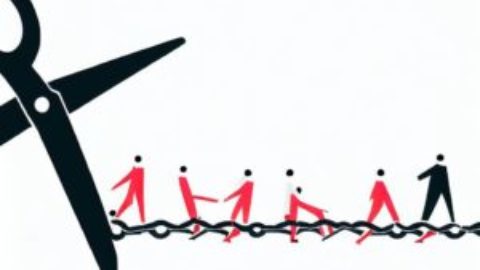As an expert in the field, I have noticed an increase in tribalism due to the rise of social media. Tribalism refers to the strong identification or loyalty to one’s group or community. This phenomenon can be observed across different domains, such as politics, culture, and social interactions. In this article, I will discuss the factors contributing to tribalism in the age of social media and provide strategies for overcoming it, all while keeping the language and tone accessible to a teenage audience.
The Role of Social Media in Tribalism

Social media platforms and digital communication channels have made it easier for individuals, especially teenagers, to connect with like-minded people who share similar beliefs and interests. This newfound ease of connectivity has led to online communities, which can serve as a source of support and validation. However, it can also create echo chambers in which individuals only engage with others who share their views, leading to a reinforcement of beliefs and a lack of exposure to diverse perspectives. This can result in a tribal mentality, where individuals perceive those outside their group as the “other.”
Psychological Forces Contributing to Tribalism

- Social Identity: The desire to belong to a group and be accepted by others. Social media platforms and online communities provide an easy way for teenagers to connect with like-minded people who share their interests and beliefs, which can create a sense of belonging and validation. However, it can also lead to a narrow perspective and a lack of exposure to diverse viewpoints, fostering tribalism and an us-vs-them mentality.
- Confirmation Bias: The tendency to seek information that confirms our beliefs and ignore information that challenges them. Social media algorithms and personalized newsfeeds can amplify this bias, as they often show us content that aligns with our interests and beliefs. This can lead to a reinforcement of our own opinions and a lack of exposure to diverse perspectives, which can foster tribalism and make it difficult to empathize with those who have different views.
10 Strategies to Overcome Tribalism
- Promote media literacy by encouraging teenagers to fact-check information before sharing it on social media. Provide resources and tools, such as fact-checking websites or tutorials on identifying fake news.
- Encourage diverse perspectives by attending events or forums that feature speakers from different backgrounds. Join online communities or social media groups with a diverse membership.
- Foster critical thinking by providing articles or videos that challenge assumptions and encourage questioning of biases. Discuss different viewpoints on issues with family and friends.
- Engage in civil discourse by setting ground rules for discussions to ensure that everyone is respectful and listens to each other. Encourage sharing of personal experiences and perspectives while seeking to understand those of others.
- Promote empathy and understanding by encouraging teenagers to explore different cultures and experiences. Talk with people from different backgrounds to learn more about their lives and perspectives.
- Challenge stereotypes by encouraging teenagers to think critically about the stereotypes they hold and where they come from.
- Encourage active listening by providing prompts or questions for teenagers to ask each other during conversations.
- Encourage collaboration by setting up opportunities that encourage teenagers to work together towards a common goal.
- Create spaces for dialogue by hosting virtual town hall meetings or forums that allow teenagers to share their concerns and ideas where people can respectfully discuss important issues.
Moving Forward: Embracing Diversity and Challenging Tribalism

As we navigate the challenges of tribalism in the digital age, it is crucial to remember that we can confront these challenges and promote a more connected and tolerant society. By exposing ourselves to different perspectives, we can better understand the world and its inhabitants. Embracing diversity in our thoughts and beliefs can help us build a more inclusive and accepting society that celebrates differences and values open-mindedness. Through awareness and effort, we can transcend the obstacles of tribalism and work towards a brighter future for ourselves and generations to follow.







